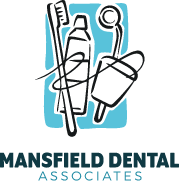The crazy thing about cavities isn’t that they affect over 90% of adults; it’s that they are so highly preventable with consistently good hygiene and dental care. Despite their destructive nature (cavities are a product of tooth decay, which destroys your tooth structure), they begin as peacefully as plaque accumulating on your teeth. The oral bacteria that plaque harbors attack your tooth enamel by converting sugars and carbs into acids, paving the way for tooth decay to set in. To prevent cavities, you have to prevent oral bacteria from overwhelming your tooth enamel and reaching the body of the tooth, called dentin.
Brush and floss like your teeth depend on it
Brushing and flossing at least twice every day is the most effective way to address plaque buildup. You can’t stop oral bacteria from gathering and forming plaque, but you can prevent the biofilm from remaining on your teeth long enough to damage them.
Drink more water
We should all strive to drink an adequate amount of water every day for many health reasons; when it comes to cavity prevention, staying hydrated promotes a healthy flow of saliva. Made almost entirely of water, saliva is a natural defense mechanism against the enamel-eroding acids that oral bacteria produce.
Be conscious of your snacking habits
Oral bacteria will consume and metabolize every nutrient they come into contact with, which is how they produce cavity-causing acids. In addition to controlling bacteria with regular brushing and flossing, you can also better prevent cavities by limiting how often you snack throughout the day.
Make sure your toothpaste has fluoride in it
When enamel grows weak, it can regain its strength if it absorbs more of the minerals that comprise it, like calcium and phosphate. Fluoride, which is found in many toothpaste brands, can bond to weakened enamel layers, strengthening it against oral bacteria and enamel erosion.
See a dentist once in a while
Actually, more than just once in a while. Despite your best efforts to prevent cavities at home, your efforts may eventually fail if you don’t attend routine dental checkups and cleanings at least once every six months. When plaque hardens into tartar, it and the bacteria it protects become impervious to your toothbrush, and only your skilled hygienist can remove them from your teeth.





Recent Comments